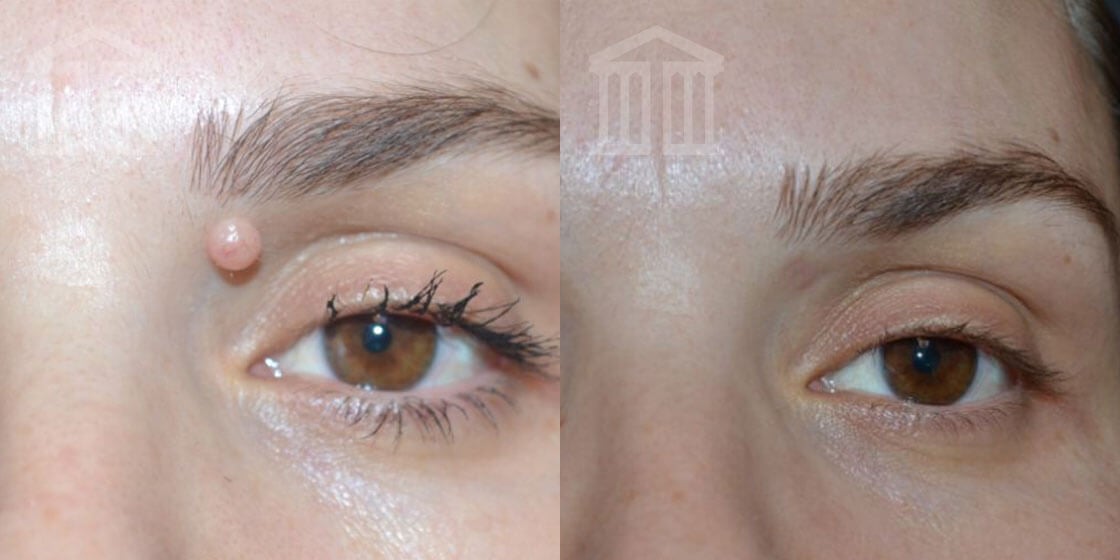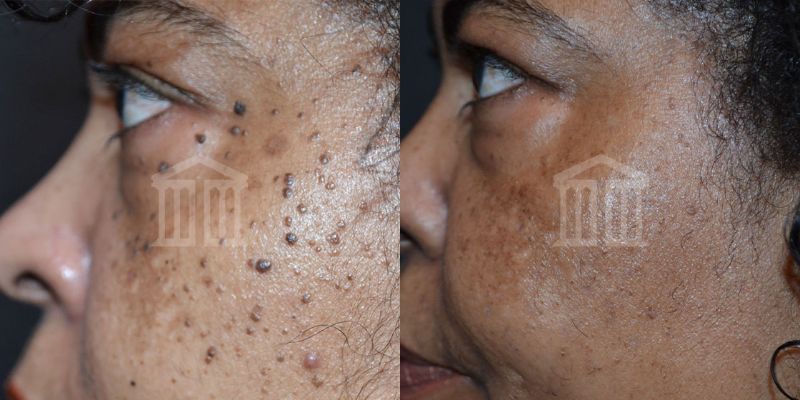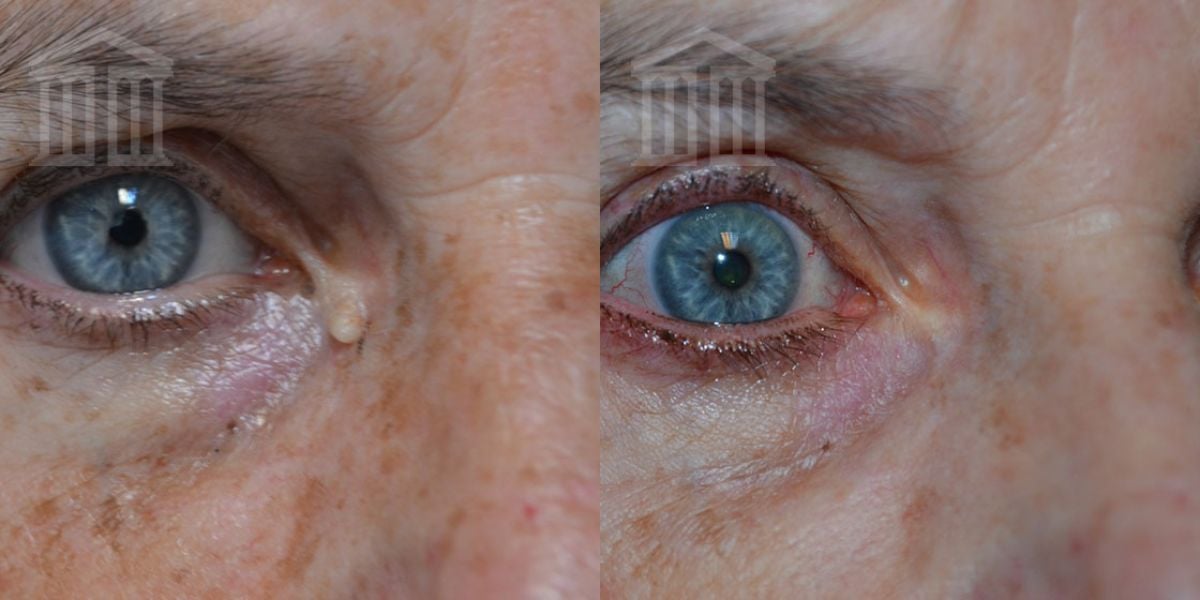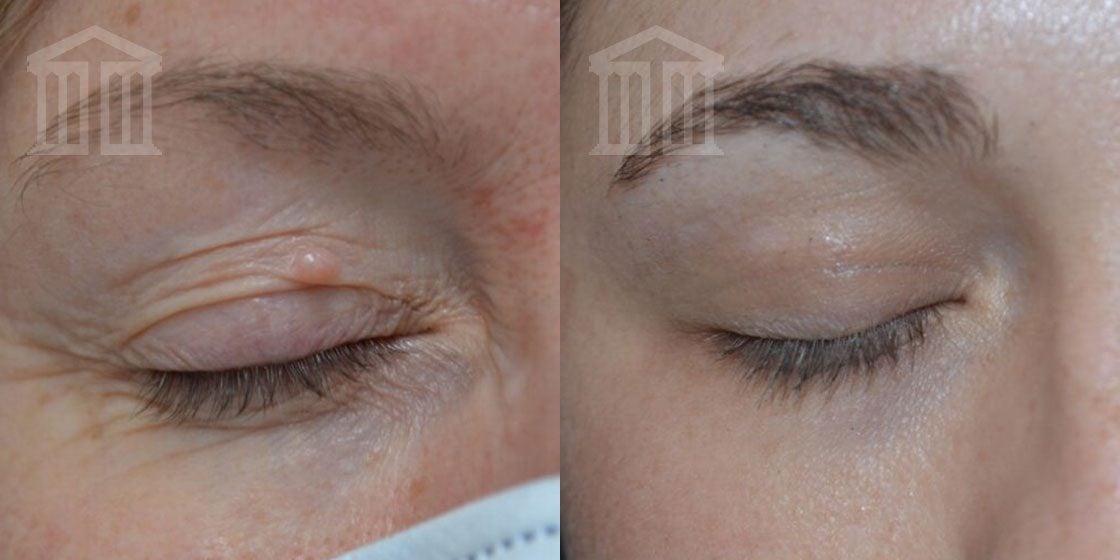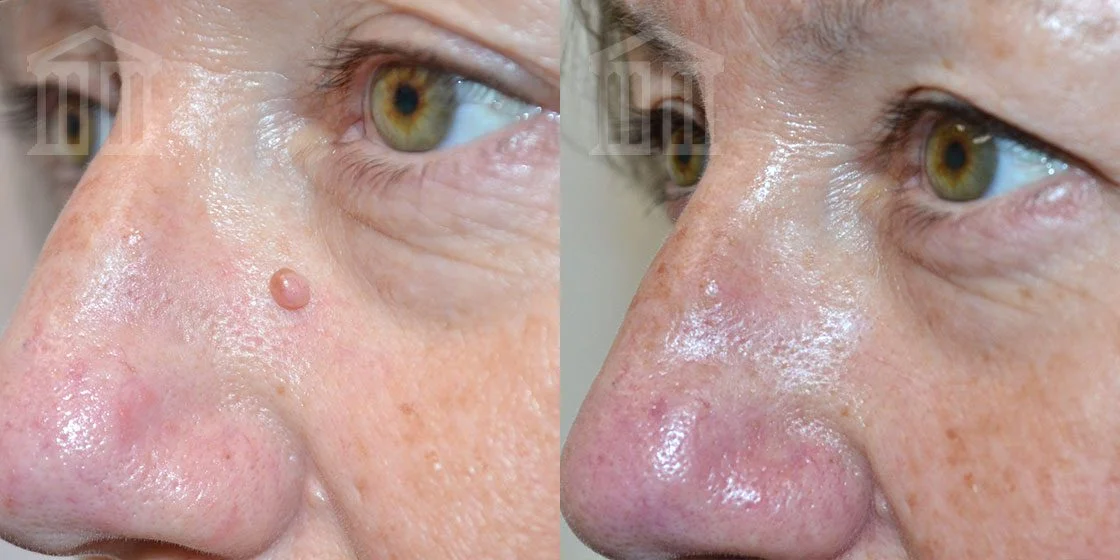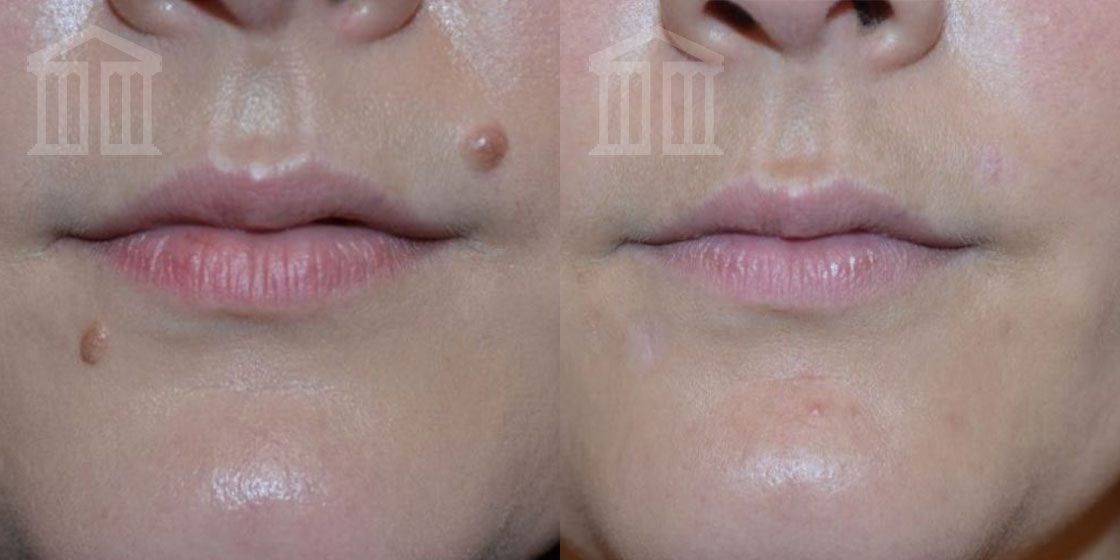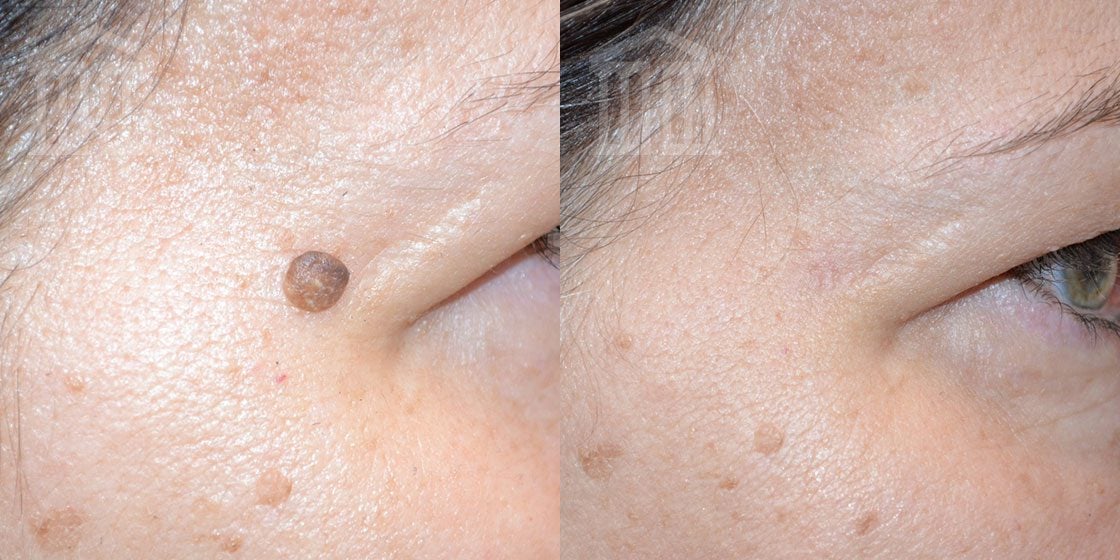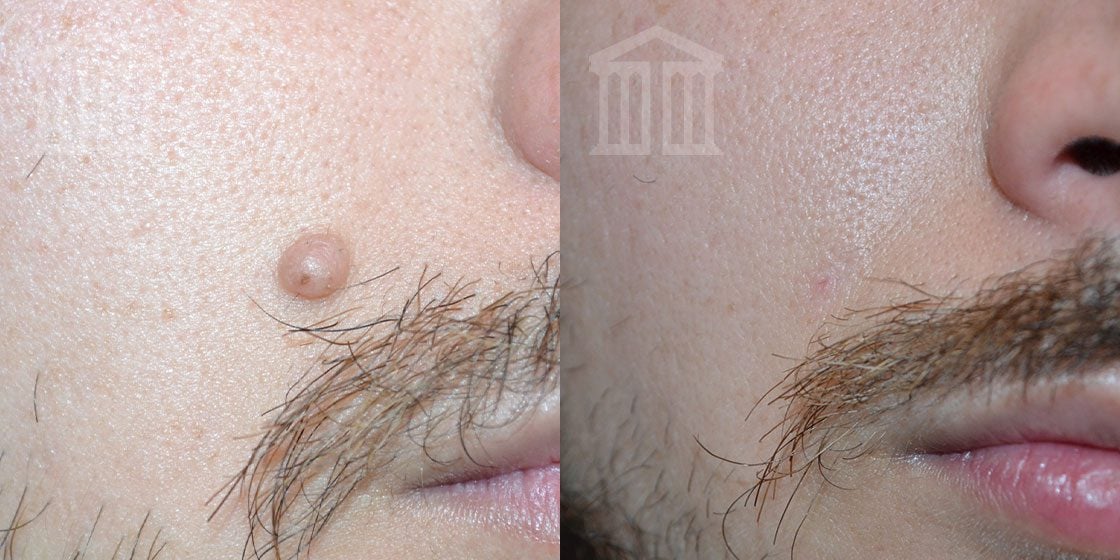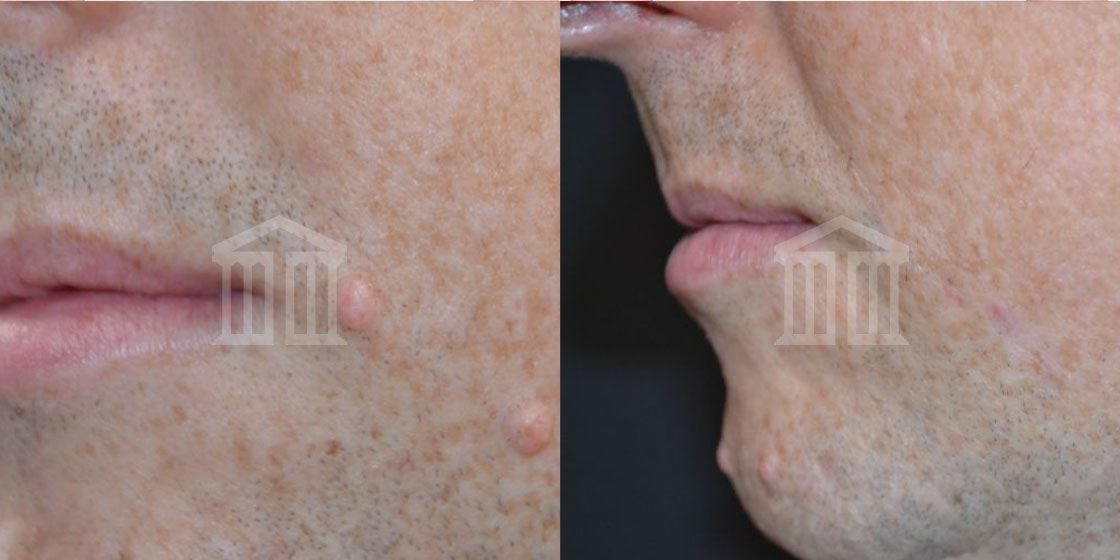Mole Removal in Nottingham
Moles, while often benign, can sometimes raise concerns. At Zenith, we understand the significance of skin health and the emotional impact of unwanted moles.
Led by Dr. Maini and Dr. Javaid, our experts in both Non-Surgical and Surgical mole removal procedures, our Mole Removals offer a blend of precision and care. Our Nottingham clinics offer all Non-Surgical and Surgical Mole Removal options, available to all patients, including those under 18 subject to parental consent and a letter from the GP. Our high success rates and free retreats make us the ideal choice for Mole Removal in Nottingham.
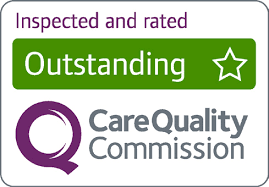






What Is a Mole?
Moles, medically termed as ‘Intradermal Naevus,’ are skin growths that can vary significantly when it comes to their shapes, sizes, and textures. While typically harmless, many individuals opt for their removal.
Moles can range from flat, brown pigmented areas to raised, darker growths. Skin specialists recommend monitoring moles for changes in colour, size, or shape, as these variations could indicate a potential risk, such as melanoma.
At Zenith, we prioritise your health, offering thorough mole assessments to differentiate between common moles and those that might pose concerns.


How Mole Removal Works at Zenith
Dr. Maini assesses each patient to determine the best Mole Removal method. For simple cases, he performs Non-Surgical treatments. If surgery is required, our skilled Plastic Surgeons handle precise shaving or excision procedures.
During your initial consultations with either a Doctor or Surgeon, our priority is to ensure your comfort and address any concerns you may have regarding the mole removal procedure.
Non-Surgical Mole Removal
Your initial consultation will involve a thorough assessment by our Senior Doctor, Dr Maini. He will assess whether the mole is suitable for radiosurgery, and discuss with you the potential risks of treatment.
If the case is proven appropriate for Non-Surgical Mole Removal, you will be immediately booked in for an appointment!
Please note that if we think the mole is suspicious, or if you have your own concerns, we can send the mole to histology for additional checks. You may then be referred to our department for Surgical Mole Removal depending on the test outcomes.
Surgical Mole Removal
Your initial consultation will involve a thorough assessment by our Plastic Surgeon to determine suitability and discuss potential risks and complications of the surgery.
Following this, a subsequent consultation with the surgeon will confirm the procedure’s expectations, after which you’ll be required to sign a patient consent form.
Ahead of your surgery, a pre-operative assessment will be arranged within a maximum of 2 weeks. This comprehensive assessment involves reviewing your medical history, taking measurements (height, weight, BMI), and conducting Bloods and MRSA tests to ensure your readiness for the surgical procedure.
Methods of Mole Removal Available in Nottingham
During your consultation, the doctor or Plastic Surgeon will assess your case, examine the mole, and recommend the most suitable method for your Mole Removal.
Below, we detail our treatments available in Nottingham. Laser / Radiosurgery is also available in our London clinic.
Laser Mole Removal / Radiosurgery Mole Removal
First discovered in the late 1960’s, Radiosurgery (or Laser Mole Removal) involves high-frequency electricity that vaporises the skin by vibrating the water within the cells. It’s known as the neatest way to remove certain moles. This technique is pain-free with a local anaesthetic and can remove the mole quickly.
Shaving Mole Removal
This involves simply shaving off a mole with a very sharp blade. Patients will be under Local Anaesthetic. Usually, the treatment is completed with Radiosurgery Mole Removal.
Excision Mole Removal
This method is used if there is any suspicion that the mole may be changing. It is a safe and accurate way to ensure the mole has completely gone, and will never return.


More About Types of Mole Removal
Laser / Radiosurgical Mole Removal
- For the vast majority of moles that we see, we feel that Radiosurgical Mole Removal is the most effective method, providing the best healing. The procedure can be difficult to perform perfectly, which is why only our expert Dr Maini has this responsibility.
- For optimal accuracy, we use the same equipment that is used in brain surgery for Radiosurgical Mole Removals.
- Laser / Radiosurgical Mole Removal works best for treating viral warts or a verruca, sebaceous hyperplasia or other small lesions that are less likely to scar on fair skin.
Shaving Mole Removal
- This procedure is ideal for any raised Lesion on the skin, especially the face. This is due to the optimal healing this procedure offers.
- Most facial procedures will only require one visit, and the effect of the procedure will be long-lasting. However, some moles have a deep element, and so recurrence in these cases is possible.
Excision Mole Removal
- If there is any suspicion regarding your mole, the Excision Mole Removal method is mandatory. In these cases, it is critical that the whole mole is removed and sent to a certified lab in one piece.
- We use 2 different methods for Excision – the one we use for your case will depend on the situation, and will be discussed with you by our Plastic Surgeons.
Why Do People Remove Moles?
There are a variety of different reasons why patients might opt for mole removal. These include:
- Mole catching on clothing, or catching whilst combing your hair / beard
- Mole located in a prominent area, for example on the face
- To improve self-confidence
Please note, if your mole is changing colour or growing rapidly, it should be urgently assessed by a doctor.


Treatment
Our skilled Plastic Surgeons and doctors determine the most appropriate Mole Removal technique for you.

Results
You will see immediate results after your Mole Removal procedure.

Longevity
Surgical Mole Removal results are permanent! For Non-Surgical treatments, our recurrence rate is less than 1%, and we also offer free retreats.

Procedure Time
Some Mole Removal treatment sessions take approximately 15-20 minutes, while others will take up to 45 minutes.

Recovery Time
There will be between 1-7 days downtime / recovery after your Mole Removal procedure, depending on the chosen method.
Why Choose Zenith Cosmetic Clinics for Mole Removal?
Choose our clinics for Mole Removal to experience expert care, advanced techniques, and a commitment to minimal scarring. Our highly-experienced Plastic Surgeons and Doctors ensure safe and precise procedures for optimal results.
Over 25 years of skin treatment expertise
State-of-the-art facilities for consultations, treatments, and reviews
Surgeons are Consultant level and are fully registered with BAAPS AND BAPRAS
CQC-regulated and rated outstanding
UK-trained doctors
24/7 accessible aftercare support for patients' comfort and reassurance
Generous loyalty points
99% patient satisfaction rates
No hidden charges -0% and other finance options available
Examples of Our Work
Browse our portfolio to see the incredible Mole Removal results our clients have achieved.
Client Testimonials
Hear from our valued clients, and learn more about their individual Mole Removal journeys with Zenith.
Read More ReviewsMole Removal Patient Journey

Consultation
Your Mole Removal journey will begin with a comprehensive consultation. During this session, our experienced Doctor assesses your moles, discussing concerns, potential risks, and exploring the most suitable removal methods. If appropriate, your medical history is reviewed and tests are performed to ensure your suitability for the procedure.
Treatment
The Mole Removal procedure at Zenith is meticulously carried out by our skilled specialists. Your Doctor will discuss the most appropriate method for your Mole Removal, ensuring optimal results are achieved. Our advanced techniques and tools for both Non-Surgical and Surgical Mole Removals will minimise scarring while prioritising your comfort.
Aftercare
After the procedure, care continues with our comprehensive, 24/7 aftercare plan. You'll receive detailed instructions on wound care, pain management, and any necessary follow-up appointments. Our commitment to your well-being extends beyond the procedure, ensuring a smooth healing process.
What Is the Cost of Mole Removal in Nottingham?
An initial consultation with the Senior Doctor starts at £50.
For Excision, the initial consultation will be with the Plastic Surgeon, and starts at £150.
Please contact our clinic for a custom quote
Book Your Consultation Online Today

FAQs: Mole Removal in Nottingham
Are all moles removed for cosmetic reasons?
While some moles are removed for cosmetic purposes, others may require removal due to suspicion of melanoma or other health concerns. Our Surgeons and Dermatologists evaluate each mole before removal.
Will my mole grow back after it has been removed?
Recurrence rate is less than 1%. Our doctor is highly experienced and takes care to ensure the entire mole is removed. However, just in case, we offer free retreats for 2 years after your initial treatment.
Will there be scarring after my Mole Removal?
The degree of scarring varies based on the removal method and individual healing. Our specialists prioritise techniques that minimise scarring, and also provide aftercare instructions to aid healing.
Are there risks associated with Mole Removal?
As with any medical procedure, there are potential risks such as infection, scarring, or changes in skin pigmentation. Our specialists discuss these risks during the initial consultation and provide comprehensive aftercare guidelines.
Is Mole Removal a preventive measure against skin cancer?
Mole Removal can be both preventive and curative. Moles or atypical growths are identified and removed promptly, reducing the risk of skin cancer development. Regular skin checks and sun protection are also crucial in preventing skin cancer.
Can I remove my own mole?
No, we would not advise that anyone attempts to remove a mole, wart or lesion without seeking help from a professional. We have unfortunately seen many nasty scars caused by people who have attempted mole removal at home.
What health concerns are related to moles?
One of the main concerns when it comes to moles is whether the mole has become cancerous. However, it’s important to note that the vast majority of moles are not dangerous.
Moles that are more likely to be cancerous are those that look different to other existing moles, or moles that first appear from the age of 25.
If you notice changes in a mole’s colour, height, size, or shape, you should seek an evaluation from a doctor. You should also have moles checked if they bleed, ooze, itch or become tender/painful.
The following ABCDE’s are important characteristics to consider when examining moles. If a mole displays any of these signs listed below, have it checked immediately by a Doctor/Dermatologist, as it could be cancerous.
- Asymmetry: One half of the mole does not match the other half.
- Border: The border or edges of the mole are ragged, blurred or irregular.
- Colour: The colour of the mole is not the same throughout or has shades of tan, brown, black, blue, white or red.
- Diameter: The diameter of a mole is larger than the eraser of a pencil.
- Evolution: The mole is changing in size, shape and colour.
What should I do if I notice my mole changing?
Make an appointment to see your GP as soon as possible. They will make an assessment and potentially refer you to a hospital. Do not attempt to remove the mole yourself.
What are the side effects or risks of laser mole removal for men?
As with any procedure, there are potential risks and side effects. Our senior Doctor, Dr Maini, is highly experienced and will talk you through any side effects and make sure you feel comfortable before the removal.
- Minor swelling
- Redness
- Bruising
- Tenderness
- Scarring (in some Mole Removal cases)
Where is your Nottingham Mole Removal clinic based?
Our Nottingham clinic is situated at:
6 Clinton Terrace,
Derby Road, Nottingham
NG7 1LY
We also have a London clinic offering Laser and Radiosurgery Mole Removal. This clinic is situated at:
39 Harley Street,
London, W1






